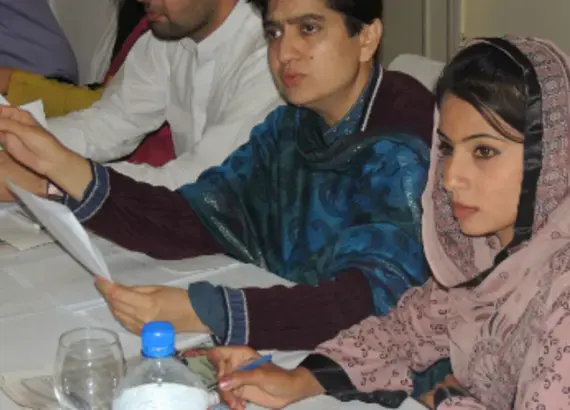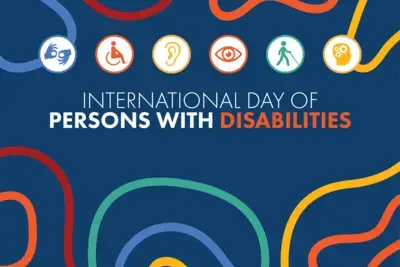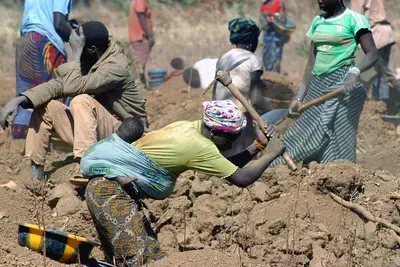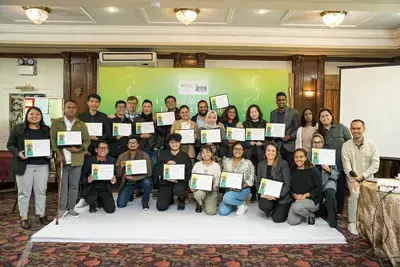
Success Story
Pakistani Women Inspired to be Policy Makers
Historically, women in Pakistan have been involved in election campaigns, but very few have taken part in their party’s policy making process. That is changing through a Political Party Development Program (PPDP), that over the last four years has included 16,609 grassroots party members, of which 44 percent have been women.
In November 2014, Dr. Shama Ishaq Baloch was elected central secretary for women’s affairs of the National Party, an appointment that came after she had raised her profile as one of the leading policy development voices of her party.
Through the NDI supported program, women become leaders in the policy making process. They are equally represented on party policy working groups. They are in charge of surveys asking thousands of members about their policy priorities. Women are organizing discussion groups so members have an opportunity to include their voice in the policy development process. Women have been consulting with researchers and civil society experts, analyzing data and existing policies, proposing policy ideas, participating in policy drafting and presenting policy proposals to their respective party leadership and grassroots members at policy conferences.
At the PML-Q (Pakistan Muslim League - Q) policy conference, Barrister Wasim Sajjad, former president of Pakistan and Senate chairman remarked, “I am pleased to see so many dedicated workers of the party contributing to the policy development. It is also encouraging that women have raised their voice for their policy priorities.”
NDI is supporting the efforts of 10 political parties to undertake responsive and democratic development of policies that are considered for inclusion in party platforms. Some of the policies have been used by parliamentarians to draft national or provincial legislation. Increasing the involvement of women is a priority and parties have included women from the grassroots to the highest levels of government, including women activists in remote parts of Pakistan and women currently serving as parliamentarians.
Shan-e-Zehra, a young member the Muttahida Qaumi Movement (MQM) political party, described the impact the program has had on her political involvement. “I am now fully aware of how policies affect our everyday life. So much so that I have resolved that one day I will become a parliamentarian,” she said.
The program has given women a chance to participate fully in the policy development process and develop both policy making and leadership skills. Male members of the policy working groups are recognizing their female counterparts as partners in the process. Party leaders are recognizing the skills and experience women offer and at policy conferences they have publicly acknowledged the contributions made by female policy working group members. In some cases this recognition has led to women being appointed to leadership roles on party decision making boards, which serves as motivation to female party members to advocate for greater representative and inclusive policies and parties.
The PPDP is designed to help parties engage in research based, democratic policy development. It helps parties bring together grassroots activists and party leaders to brainstorm policy priorities, conduct research, reach out to members, consult with civil society and draft policies that respond to the concerns of party members and citizens.
Following policy drafting, the proposals are reviewed by party leaders and then presented, debated, amended and adopted by the members present at a policy conference. Approximately 65 percent of the policies adopted at the party conferences have been included at least in part in the party platforms.
Published on June 10, 2015



